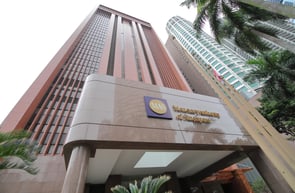Approaches to cryptocurrency regulation across the Asia-Pacific region vary widely. Some countries have banned cryptocurrencies, some welcome and regulate them, and some are yet to decide.
A growing number of regulators across the Asia-Pacific region have placed the risk of financial crime related to cryptocurrencies high on their priority list and are taking a more focused view of the sector than ever before. Your crypto business must be alert to developments in these times of significant change.
In this blog, which follows our recent analysis of developments in Europe, we look at how countries in the Asia-Pacific region are dealing with the challenge of AML cryptocurrency regulation and what this means for your cryptocurrency compliance operations.
Asia Pacific: Ripe for Cryptocurrency Adoption?
For some cryptocurrency enthusiasts, the Asia-Pacific region has been an ideal testing ground for cryptocurrency adoption.
With a dynamic population and a generally high level of technology adoption, some countries have seen a significant volume of cryptocurrency trading compared to other parts of the world.
A number of observers have pointed to the Asia-Pacific region as well-poised for the use of cryptocurrencies and related technology in remittances, development and other use cases.
Some major financial institutions and merchants in the region have also expressed their intention to start offering cryptocurrency-related services.
Growing Scrutiny
But if the Asia-Pacific region seems like the perfect testing ground for cryptocurrency adoption, it has also played host to major concerns about the risks the technology could pose.
Concerns about capital flight, financial integrity and consumer protection were on the minds of regulators.
And cases of cryptocurrency-related money laundering and terrorist financing affecting the region also negatively affected perceptions.
The shadow of North Korea has also loomed over local cryptocurrencies. North Korea has engaged in ransomware campaigns as well as large-scale hacking against cryptocurrency exchanges in South Korea as it pursues its weapons of mass destruction activities.
Regulators
In response to these risks, some countries have decided to regulate the cryptocurrency industry and promote an environment that is friendly to innovation but able to mitigate risks.
Singapore and Hong Kong
 Singapore and Hong Kong have sent particularly welcoming messages to the cryptocurrency industry. Singapore has signaled its intention to prevent the de-risking of the cryptocurrency industry from the banking sector, but its approach is not laissez-faire: In January, it unveiled a new payment services law that, if passed this year, will provide a regulatory framework for cryptocurrency exchanges, and even is also thinking about how to bring decentralized exchange platforms into the regulatory framework.
Singapore and Hong Kong have sent particularly welcoming messages to the cryptocurrency industry. Singapore has signaled its intention to prevent the de-risking of the cryptocurrency industry from the banking sector, but its approach is not laissez-faire: In January, it unveiled a new payment services law that, if passed this year, will provide a regulatory framework for cryptocurrency exchanges, and even is also thinking about how to bring decentralized exchange platforms into the regulatory framework.
In November 2018, Hong Kong’s Securities and Futures Commission (SFC) unveiled its framework for a sandbox regulatory framework for licensing crypto exchanges. The sandbox approach allows cryptocurrency exchanges to voluntarily enter into licensing arrangements so that the SFC can determine how best to regulate this nascent space, while trying to strike a balance between enabling innovation and managing risks.
“We will continue to monitor the market and enforce when necessary.” But we also urge market professionals to guard the gates properly to prevent fraud or questionable fundraising and help us ensure we comply with the law.”
— Ashley Alder, Hong Kong, Chief Executive Officer of the Securities and Futures Commission
Japan
Japan began regulating cryptocurrency exchanges in April 2017. Since then, it has developed an intensive licensing regime and regulatory apparatus focused on overseeing cryptocurrency exchanges. It even revoked the licenses of two stock exchanges in response to fears of lapses in compliance practices. The Japanese government has also supported the formation of a local self-regulatory organization for cryptocurrencies. As a result of this tightening of regulations, Japan has seen a significant increase in the number of reports of suspicious activity involving cryptocurrencies.
South Korea
South Korea, faced with threats from North Korea, has at times debated whether to take a tough stance on cryptocurrencies. However, South Korea has recently clarified its intention to bring cryptocurrencies and ICOs within its regulatory framework without stifling the industry.
 Further, the Philippines, Thailand, Malaysia and Australia have developed cryptocurrency regulatory frameworks broadly aligned with international standards. But with the FATF set to update its standards in June, these countries may find themselves changing and adapting their domestic frameworks in response.
Further, the Philippines, Thailand, Malaysia and Australia have developed cryptocurrency regulatory frameworks broadly aligned with international standards. But with the FATF set to update its standards in June, these countries may find themselves changing and adapting their domestic frameworks in response.
Moreover, even where countries are welcoming to cryptocurrency business, the industry should not assume that regulators will take their enforcement responsibilities lightly. On March 8, Australian authorities suspended two cryptocurrency companies for facilitating illegal activity and issued a reminder to crypto exchanges about their compliance obligations.
“We will continue to encourage experiments in the blockchain space that may involve the use of cryptocurrencies, as some of these innovations may prove to be economically or socially beneficial. But we will also remain vigilant against new risks.”
— Tharman Shanmugaratnam, Deputy Prime Minister and Minister in Charge of the Monetary Authority of Singapore, February 2018
Skeptics
Several countries across the region, responding to the perceived risks, have taken a less receptive stance – and in some cases adopted a downright hostile approach.
 China
China
China, especially fearing the risk of capital flight, banned cryptocurrency exchanges in the country in September 2017, and in August 2018 it also initiated a ban on access to cryptocurrency platforms abroad.
India
India has not gone as far as China, but in April 2018 its regulators banned banks and other regulated financial institutions from providing services to cryptocurrency exchanges. Recently, India has indicated that it will regulate cryptocurrency businesses, and the details of the regulation are expected to be revealed this spring.
Indonesia
Indonesia, amid concerns over terrorist financing, warned against doing business in certain types of cryptocurrency activities in January 2018, but announced in February this year that cryptocurrency futures trading activity would fall under the purview of local securities regulation.
Vietnam
Vietnam has not yet taken a clear position on whether it will regulate or ban cryptocurrency exchanges, but it has banned the use of cryptocurrencies in payments and banned mining activities.
As these countries see it, banning certain types of cryptocurrency-related activities is the only way to manage risks.
But as the cases of India and Indonesia show, the approaches and perceptions of regulators are already changing. The frameworks in these countries could change significantly over time.
Knowledge of the landscape
If your crypto exchange is operating in the Asia-Pacific region, it is critical that you stay informed of the changing regulatory environment.
With such huge variations from country to country, compliance officers must be aware of local requirements, risks and challenges.
“Let this be a warning to digital exchange providers: if you fail to meet your obligations, your actions will not go unnoticed.”
— Matthew Craft, New South Wales Police Cyber Crime Unit Detective Superintendent, March 2019.
And with the threats of cybercrime, money laundering and terrorist financing occupying the minds of enforcement-ready regulators, your business must be able to successfully monitor and investigate illegal activity.
Your business should consider:
- If you have operated without regulatory oversight until now, are you ready to find yourself under scrutiny and audit?
- Are you able to accurately monitor customer behavior and identify if suspicious activity is occurring?
- Are you able to detect terrorist financing and other similar risks?
- Are you aware of the risks posed by state actors like North Korea and are you prepared to comply with cryptocurrency-related sanctions measures?
Contact us for more information on how Elliptic’s AML and forensics solutions can help your business meet its compliance goals.

APAC Crypto Regulation Regulation



